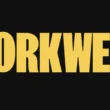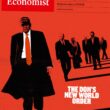It’s been a bad week for magazines. Hearst announced it would “cease monthly print publication” of The Oprah Magazine after 20 years during which it almost defined the company that has long been the global leader of women’s monthlies. Curiously, the announcement was followed by news that the magazine’s next (final?) issue in September would be the very first cover in the two decades not to feature Oprah Winfrey herself. Instead, it will profile a young American woman killed by police.
Could it really be a coincidence that the Hearst announcement about stopping Oprah’s magazine (without only a vague, hurried reference to the future) came just before news of the September Black Lives Matter cover?
The Hearst announcement itself was comical corporate-speak: “As the brand celebrates 20 years of The Oprah Magazine, we’re thinking about what’s next, but again the partnership and the brand are not going away. This is a natural next step for the brand, which has grown to an online audience of 8 million, extending its voice and vision with video and social content. We will continue to invest in this platform as the brand grows and evolves into one that is more digitally-centric.”
The New York company had other things on its mind and another anniversary to mark: Troy Young was ousted as President of Hearst Magazines, amid allegations of sexual harassment and a “toxic culture”, exactly two years after he was appointed.
It’s only a few months since Hearst Corp neatly responded to the pandemic, not by cutting jobs or salaries but by giving its employees a 1% bonus. But it has found itself on the defensive against allegations of racial imbalance in its once dominant magazines division whose profits are now overshadowed by Hearst’s business media and digital entertainment divisions. Perhaps the appointment of an interim president will give Hearst Corp the opportunity to consider merging or mixing its magazines with its pureplay digital media operations.
In Australia, deck-clearing by the new private equity owners of Bauer Media has culminated in the closure of eight more magazines. These include the local editions of Harper’s Bazaar, Elle, Men’s Health, and Women’s Health which mark the end of a 45-year-relationship between Hearst and the former ACP Magazines. It had begun with Cosmopolitan, just the magazine’s third edition after the US and UK. Bauer closed it in 2018. The final punctuation mark in its painful eight years in Sydney.
In the UK, Enders Analysis estimates that magazines may lose at least £250m in revenue in 2020, due to Covid. The newsstands, which account for the majority of UK copy sales, are still operating some 20-30% below pre-Covid levels which is hurting publishers and retailers. And WARC forecasts that UK adspend will fall by 16% overall in 2020.
But the country’s largest magazine publisher is in a different place. Future Plc, says operating profits in the year ending 30 Sept 2020, will be some £80 million from revenue of £320 million. That will be eps growth of 32%, and net debt down to £80 million.
Future expects at least £15 million of synergies from its £140 million acquisition of TI Media (the former Time Inc UK) in March: about 10% of the cost base. To underline its confidence, the company is repaying the job-retention subsidy it had previously received from the UK government.
In addition to its trademark roll-out of tech systems at TI Media, Future has rapidly launched “umbrella” digital brands in gardening, TV viewing, and wellness. The sites, drawing on the content of established print brands, mark a determination to accelerate the digitalisation of a portfolio which had been starved of development cash.
Future, whose share price has risen 10% during July, is a lone voice of optimism among UK magazine-media companies.
Bauer (which makes more UK profit from radio than magazines) has announced the closure, merger or sale of 10 brands including Q. Copy sales of the 34-year-old music magazine (which had once been a hot radio and TV brand) have fallen from a peak of 200k to less than 20k in 20 years.
Private equity-owned Dennis, publisher of The Week, says it may lay-off up to 25% of its 480 London staff. Since the £200 million-revenue Dennis has been one of the leaner magazine companies, it is assumed that the plans may also include some magazine closures.
Meanwhile, the Burda-owned Immediate Media trailed the probable closure of 12 magazines and up to 113 jobs. The £200-million revenue UK company (which acquired BBC Good Food for £31m in 2018, and and sold its Hitched wedding portfolio for £40m earlier this year) is expected to close a clutch of craft, children’s and homecare magazines.
Seven of the magazines are based in the company’s Bristol office in the UK’s south west, where it also publishes BBC History Magazine, BBC Focus, BBC Wildlife Magazine, BBC Countryfile, Mollie Makes, BikeRadar and Cycling Plus.
Since the closures could involve a reduction of at least 10% in the 450 headcount at Bristol, Burda’s UK executives may be feeling just a bit embarrassed having last year spent some £9 million on the refurbishment of an historic £20 million building in the port city.
Architects and designers have bathed in the glorious 18-month refurbishment of the Art Deco building: “The height of the atrium and the view onto it from each floor lent itself perfectly for the installation of a hanging black olive tree… that can be moved up and down to enable new views onto it from each floor throughout the year.” Just beautiful.




